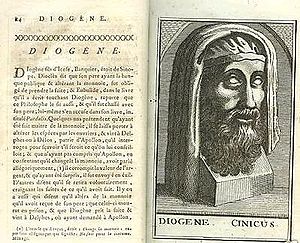Part 6: Criticisms of Schmidt’s Literary Designations
In this post, we’ll cover some of the more recent negative assessments of Karl Ludwig Schmidt’s designation of gospel texts as Kleinliteratur versus Hochliteratur.
A cultural insult?
As you recall, the reason Schmidt categorized the gospels as Kleinliteratur had to do with their structure and their core characteristics. It also made sense, given his theory that the gospels arose over time from a religious group. However, here’s what The Westminster Dictionary of New Testament and Early Christian Literature and Rhetoric (edited by David E. Aune) has to say on the matter.
New Testament texts were categorized as Kleinliteratur, in contrast to the Hochliteratur produced by and for the educated upper classes of the Greco-Roman world. The social correlative of this typology was that Christians were thought to have been drawn almost exclusively from the lower classes, a view now widely regarded as inaccurate. The dichotomy between Hochliteratur and Kleinliteratur derived linguistic support from the widespread opinion current earlier in this [the 20th] century that the Greek language of the first century C.E. could conveniently be divided into two major types, literary and nonliterary Koine. (p. 278, emphasis mine)
But that wasn’t Schmidt’s argument. The gospels, he argued, arose gradually within the community, beginning with individual stories (pericopae) in the oral tradition. Their place in Kleinliteratur had very little to do with social or economic status and everything to do with process and origins.
Richard Burridge, unsurprisingly, takes up the cause and waves the banner as well. In What Are the Gospels? he writes:
Any attempt to ask literary questions about the gospels, and in particular, their genre, is automatically precluded in advance . . . The form critics’ distinction merely has the effect of removing the gospels from any discussion of their context within the first century on the grounds that they do not share some predetermined literary aspirations. However, as Suggs has pointed out: ‘The alleged lack of literary expertise on the part of the evangelists is not a valid objection . . . books of any genre may be poorly written.‘ [He’s quoting M. J. Suggs from The Interpreter’s Dictionary of the Bible, Supplementary Volume, 1976 ed.] Much more detailed and accurate study of the various genres, types and levels of first-century, and especially Graeco-Roman, literature is needed. (p. 11, emphasis mine)

Burridge’s text reads like a scorching indictment, and it certainly would be . . . if it had any contact with reality. Schmidt himself elaborates upon a case of poorly written Hochliteratur. He writes:
| Diogenes Laertius was an incompetent biographer, for he haphazardly produced a great number [of] biographies (they were more like rapidly dictated, uneven leaflets!), whereas the gospel tradition was a natural process — not a belabored product but a lush growth. The same standard of judgment cannot possibly be applied to both the gospels and Diogenes Laertius, since he tries to pass himself off as an author, writing a long foreword and naming his sources, and still manages to produce an incoherent work. (The Place of the Gospels, p. 5, emphasis added.) |
Diogenes Laertius’s work is still Hochliteratur; it’s just bad Hochliteratur. It isn’t the quality of the finished product that defines the category. Rather, it’s the author’s intent, his process, and his raw materials. The evangelists’ supposed lack of literary expertise is indeed “not a valid objection,” so it’s a good thing the form critics didn’t base their conclusions on the gospel-writers’ abilities.
Reassessing Luke
Schmidt, of course, did point out the inadequacies of the evangelists. In particular, he disagreed with the current prevailing favorable view of Luke as an author, concluding that “his abilities were strangely unequal to his intentions, that the material imposed restrictions on him.” He quotes Franz Overbeck (Historische Zeitschrift, 1882), who had a slightly higher opinion of Luke as an author: Continue reading “The Genre of the Gospels: How the Consensus Changed (Part 6)”
